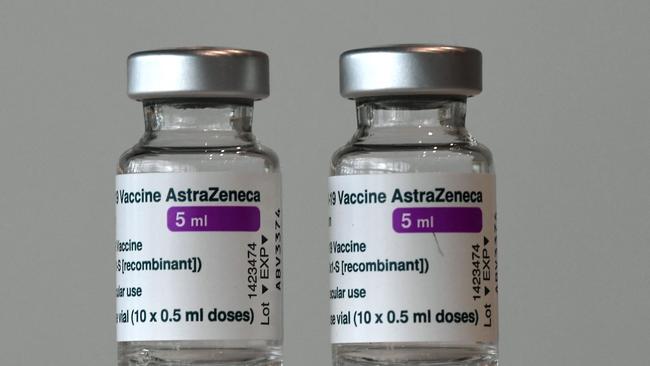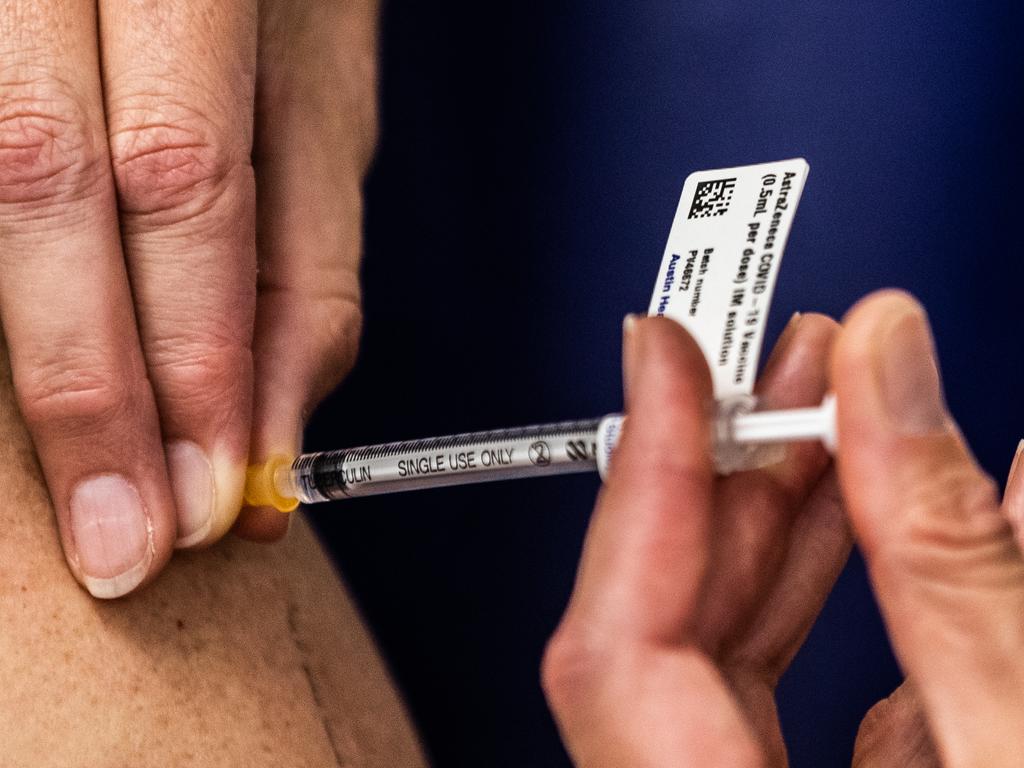European regulators approve AstraZeneca vaccine for use after emergency review found it ‘safe and effective’
European regulators have approved the AstraZeneca vaccine for use after an emergency review found it is ‘safe and effective’.

European regulators have approved the AstraZeneca vaccine for use after an emergency review found it is “a safe and effective vaccine’’ but it will provide warnings about possible serious and rare side effects to doctors and patients.
The findings, coming after concerns the vaccine caused blood clots and fears it may have been a factor in some deaths, will put pressure on 17 European countries to reconsider their current ban on using AstraZeneca.
Most Australians are expected to receive the AstraZeneca vaccine, most of which will be manufactured under licence by the CSL laboratory in Victoria.
The European Medicines Agency (EMA) said on Thursday that the AstraZeneca vaccine should continue to be used and that it wasn’t associated with an overall increase in the risk of blood clots.
Emer Cooke, the EMA executive director, said: “This is a safe and effective vaccine, its benefits in protecting people from Covid-19 with the associated risks of death and hospitalisation outweigh the possible risks.
“The committee also concluded that the vaccine is not associated with an increase in the overall risk of thromboembolic events or blood clots.”
The EMA said there had been seven cases of cerebral venous sinus thrombosis in Germany, three in Italy, three in the UK, two in Norway, one in Spain and two in India.
But it found while these cases were “a small number of cases of rare and unusual but very serious clotting disorders”, it couldn’t rule out definitively a link between these cases and the vaccine” and it will now introduce a warning in product information for doctors and patients to raise awareness.
The EMA said in a statement: “the vaccine may be associated with very rare cases of blood clots associated with thrombocytopenia, i.e. low levels of blood platelets (elements in the blood that help it to clot) with or without bleeding, including rare cases of clots in the vessels draining blood from the brain (CVST).’’
But it pointed out how rare the cases are, with only seven cases of blood clots and 18 cases of CVST recorded after 20 million people had received the vaccine. This is a lower rate than what would normally be expected to occur in the general population.
“If it was me, I would be vaccinated tomorrow, but I would want to know that if anything happened to me after vaccination what I should do about it,” Ms Cooke said.
“Drawing attention to these possible rare conditions and providing information to health care professionals and vaccinated people will help to spot and mitigate any possible side effects.”
Several European countries had removed particular batches of the AstraZeneca vaccine from use, believing there may have been a fault, but the EMA said there was no evidence of batch issues.
The findings by the EMA have added to the World Health Organisation recommendations to continue with AstraZeneca vaccinations. Countries such as France, which may introduce a new lockdown in Paris, and Germany, also facing rising infections, have stockpiled millions of doses of AstraZeneca while awaiting the review findings.
The European Commission president Ursula Von der Leyen has also threatened emergency rules to take over vaccine manufacturing to hoard supplies for Europeans, rather than allow companies to fulfil non-EU contracts.
The green light for AstraZeneca comes as Britain faces a shortage of the vaccine from next week. Production issues with supplies from the Indian Serum Institute has halted five million doses arriving in Britain, pushing back the nation’s fast moving vaccination program by four weeks.
British Prime Minister Boris Johnson, who had coronavirus last April, will receive his first vaccination jab on Friday.
In a dig at his European counterparts, Mr Johnson hailed the Indian Serum Institute for their heroic efforts and insisted that Britain would not impose any export controls.
“We hope to work very closely with the serum institute and partners around the world including on the European continent’’, he said.








To join the conversation, please log in. Don't have an account? Register
Join the conversation, you are commenting as Logout